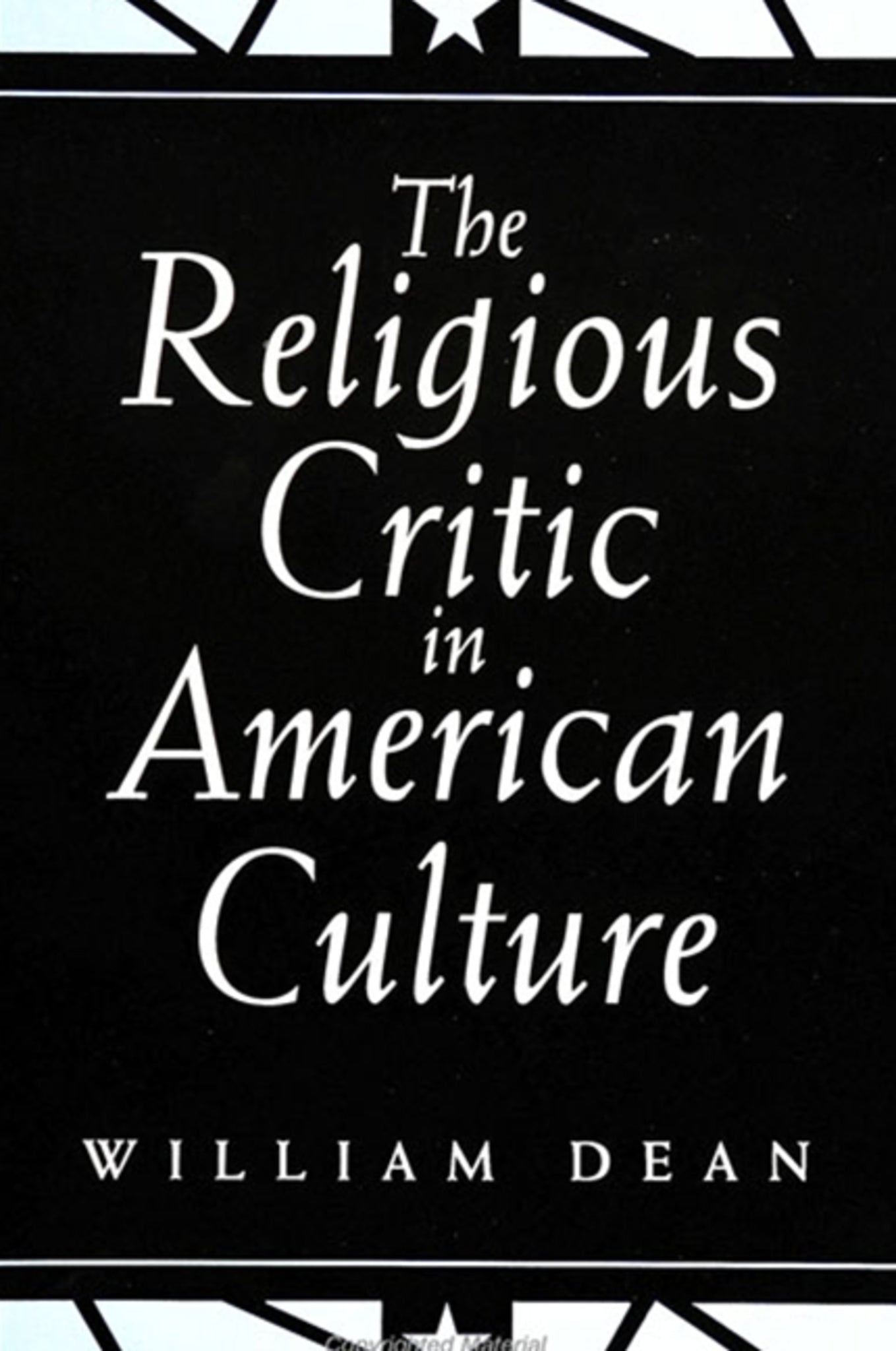We're sorry. An error has occurred
Please cancel or retry.
The Religious Critic in American Culture

Some error occured while loading the Quick View. Please close the Quick View and try reloading the page.
Couldn't load pickup availability
- Format:
-
24 August 1994

This book provides a new rationale for "religious criticism" in American society. First, Dean shows why today's academic intellectuals are relatively indifferent to questions of meaning in America, pointing to the loss of American "exceptionalism," the professionalization of the academy, and the rise of post-structural criticism. He then shows how intellectuals may reclaim a prophetic role by offering a new theory of the nature of religious thought. Tracing this theory to a twentieth-century emphasis on conventions, Dean provides a way to understand how imaginative social constructions can become active historical conventions, with real historical force. He suggests that the sacred itself begins as an imaginative construct and becomes a convention, thus working as an active, "living" force in history. Finally, Dean argues that religious critics must now reclaim a responsibility for shaping their society's sacred conventions.


"William Dean has written a powerful book for our time—the best case for serious public intellectuals we have!" — Cornel West, Harvard University
"This book engages the reader in an exploration of a related set of ideas, ideas that are timely, complex, challenging, and open-ended. Every page, including many of the footnotes, is an invitation to look further and to reconsider received opinion. Few readers will have read as widely or as carefully." — Robert L. Payton, Indiana University
"A thoughtful, persuasive case for the overdue reunion of religion with intellect in the public square. William Dean restores perspective to the most important debate of our time." — Hodding Carter
Preface
Introduction
Part I: Abandoning American Culture
1. The Religious Critic and the End of an Era
2. The Rise of the Professional Intellectual
3. William James, Public Intellectual
Part II: Recovering Religious Theory
4. Religious Narrative and the Avoidance of Nature
5. Religious Naturalism and the Avoidance of Ambiguity
6. The Religious Thinker and the Acceptance of History
Part III: Grounding Religious Theory
7. The Reality of Conventions
8. The Reality of the Sacred Convention
Part IV: Reclaiming American Culture
9. The Religious Critic in the Third Sector
10. The Religious Critic and a Myth of America
Notes
Bibliography
Index



